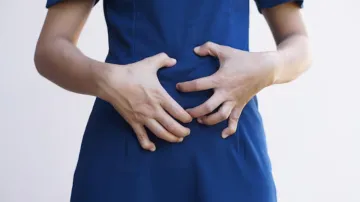Abdominal bloating is a common problem, often triggered by a large meal or a gas-producing food. It can also result from gut sensitivity due to emotional changes, and various underlying health conditions.
When we spoke to Dr G. Prashanth Krishna, Managing Director of Prashanth Hospitals, he said that bloating and improper digestion can be treated with a combination of lifestyle changes, diet adjustments, and supplements:
Eat and drink slowly: Eating and drinking too quickly can cause you to swallow more air.
Avoid certain foods: Try to identify foods that make you bloated and avoid them. You can also try an elimination diet to pinpoint which foods are causing the problem.
Eat more fibre: Fiber can help regulate bowel movements and improve digestion.
Take probiotics: Probiotics can help rebalance your gut bacteria and improve digestion. You can take probiotics or eat fermented foods like yoghurt.
Take antacids: Antacids can help relieve inflammation in the digestive tract and pass gas.
Exercise regularly: Exercise can help improve digestion and prevent bloating.
Bloating after eating
Eating too quickly causes you to swallow more air, which can lead to gas and bloating. Try to eat slowly, chewing each bite carefully. Mindful eating can make it easier to realize when you're full. Eating smaller, more frequent meals is another way you can try to cut back on bloat.
Foods to reduce bloating
If you notice certain foods causing you to bloat, try cutting back or avoiding them. Common culprits include wheat, beans, lentils, garlic, onions, and asparagus. Milk and dairy foods can also cause bloating if you have a hard time digesting lactose. Stomach bloating often happens when poorly digested carbohydrates begin to ferment in your colon.
ALSO READ: Do you smoke cigarettes and drink tea daily? Know how THESE habits can cause chronic constipation
